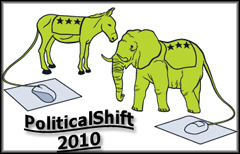 We are so connected today and our lives are so busy how often do we really find solitude? Does what we classify as alone really suffice as alone time? or do we have our phones next to our heads waiting for a buzz? Are you still alone even with technology? This chapter discusses the end of solitude due to technology. This contemporary self always wants to be known and recognized because we feel validated by other people and what they say about us and how often they communicate with us. If you have a popular Facebook wall or everyone texts you on a Friday night you feel better than if you didn't. We live in a hectic life of connection to others and we lose our solitude. The stillness of introspection is lost and it makes it difficult to have solitude and alone time with God. Technology takes away our focus and our privacy leaving us little time to reflect and be intimate. Without the time for solitude we lose time for God as well. As a Christian we need to be alone to hear God speak to us.
Disucssion Questions: What does this do to our relationship with God? Will you lose your identity with the loss of solitude? Links: http://www.thedailybeast.com/newsweek/2011/01/11/sherry-turkle-looks-at-technology-and-relationships-in-alone-together.html http://www.saintjosephs.org.uk/notices/Importance-of-Solidarity.pdf
0 Comments
 Siegel's says that democracy is the creativity of people expressing their opinions. In a governmental setting, he says that democracy usually has a very formal meaning of people expressing their wants for an ideal government. One of which now is the access of the Web 2.0. Citizens have access to contribute to the cultural changes and occurrences through technology such as blogs, social networks, online video creating and the use of sharing as a source to communicate and relate to others. We can instantaneously post our opinion and such criticisms easily and readily. Siegel talks about assignment zero which is an experimental journaling site. It makes all of us reporters of news. This can be good and bad for us. It's a broader base of ideas and opinions but the raw access we have to opinion (true or untrue) can be dangerous for opinion forming. New media has provided a new way of communicating and expressing individual interests. This has shifted natives and immigrants for better and worse. Seigel makes another point in saying that new world democracy and freedom have lost their meaning. he states that their purpose now is to combat the vast criticisms so frequently published We have lost the ability to see the importance of democracy and use it for our own means and self serving practices.
Discussion Questions: How does this effect our freedom? Do the benefits of this use of new media benefit or hurt our ability to make a sound informed decision about democracy? Links: http://www.facebook.com/barackobama http://www.usnews.com/opinion/articles/2010/02/04/5-ways-new-media-are-changing-politics |
 RSS Feed
RSS Feed